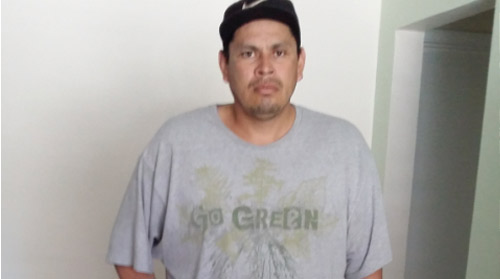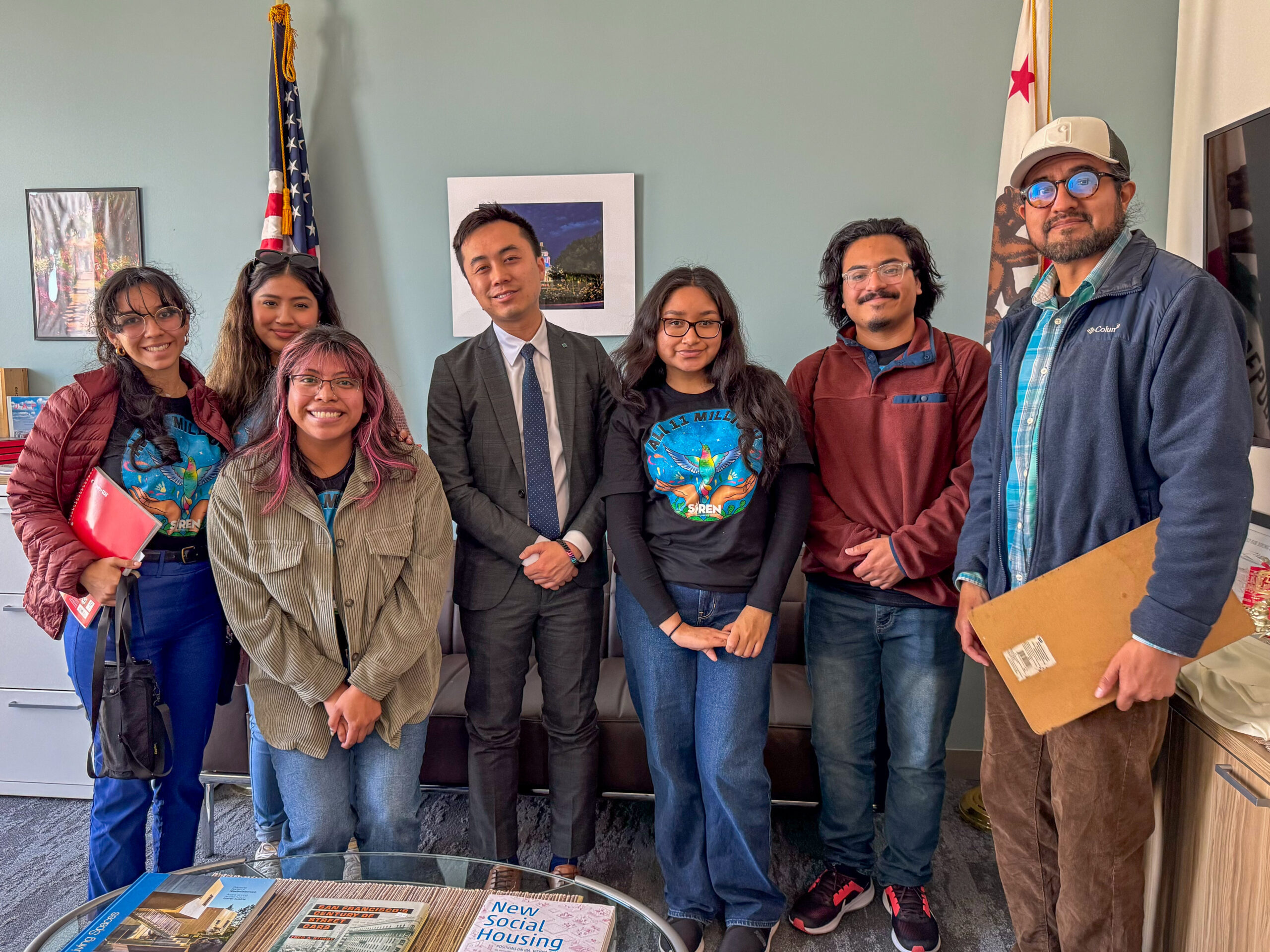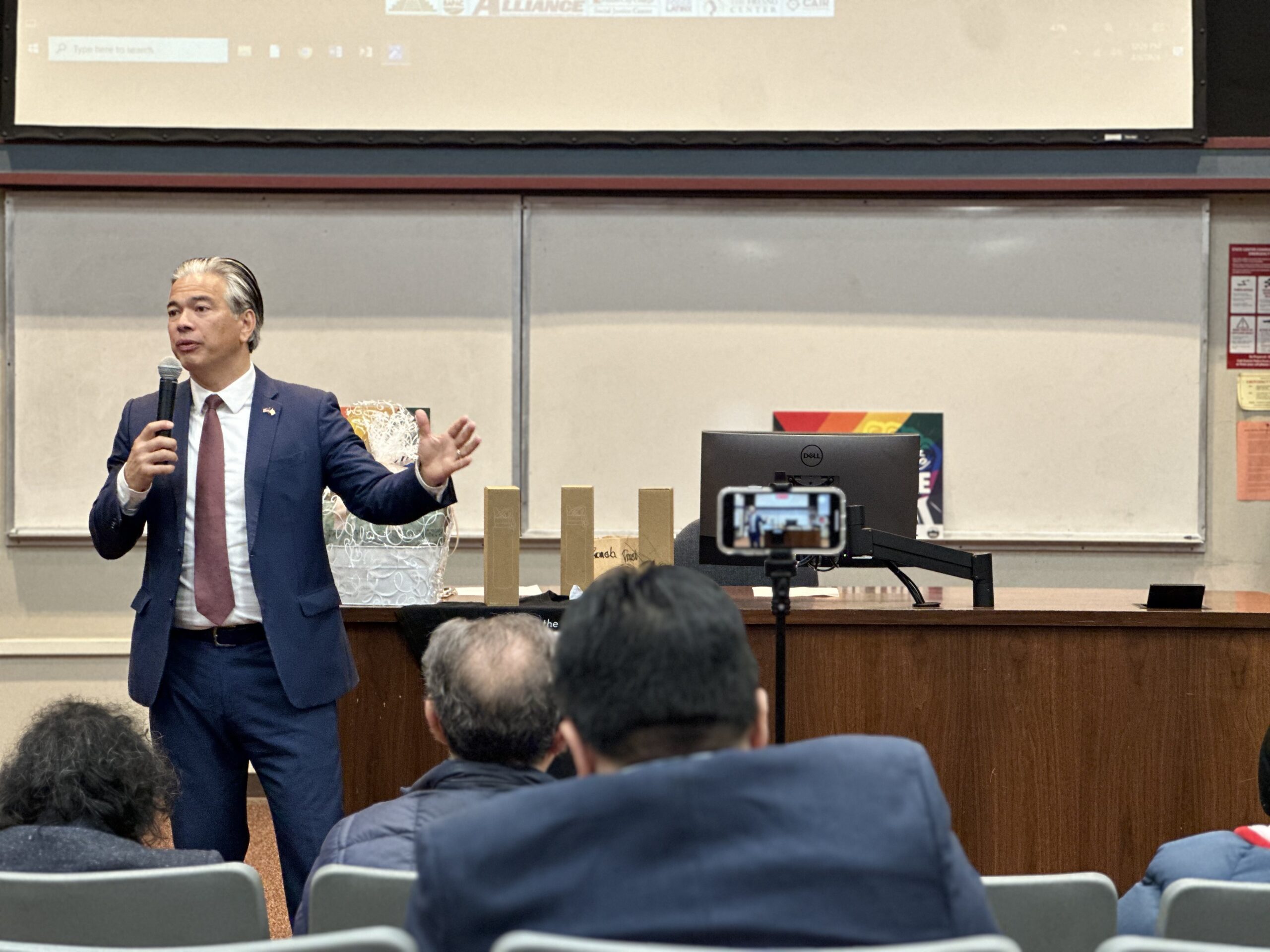 By Viji Sundaram, originally posted on New America Media
By Viji Sundaram, originally posted on New America Media
Editor’s Note: A state bill re-introduced Tuesday in the California legislature would allow all Californians to access health care coverage regardless of their immigration status. Health for All (Lara) was one of 10 bills presented Tuesday by California Democrats to expand services to undocumented immigrants living in California.
REDWOOD CITY, Calif. – Painful ulcers on his right leg and the bottom of his foot forced Carlos Garcia, 38, to wear leg braces and use a walking stick. They also prevented him from holding down any job that required standing for extended periods of time.
Last month, his ulcerated leg forced Garcia to move from Sacramento to San Mateo to access that county’s generous health care plan for low-income people known as Access to Care for Everyone (ACE).
San Mateo is one of only 10 counties in the state of California that allows undocumented residents to access the county health care plan. The other 48 counties in the state exclude undocumented Californians like Garcia from enrolling in county programs. (Sacramento cut services to undocumented residents in 2009, citing financial pressures.)
Across the state, Gov. Jerry Brown is cutting funds to safety net hospitals, citing the reduction in uninsured Californians because of the Affordable Care Act.
Yet close to 3 million of the state’s residents, Garcia among them, remain uninsured.
“The only reason I moved back to San Mateo was the ACE program,” Garcia said, speaking through an interpreter. “The Bay Area is so expensive — living in Sacramento is a fraction of the cost. But ACE gives me access to health specialists.”
With the state’s budget surplus, health care advocates are pressuring Sacramento to allow undocumented residents to access health services again. Sacramento is now reconsidering its policy, according to Griselda Zamora, an enrollment counselor with Sacramento Covered.
If it does, it could prompt other counties to follow suit.
In Fresno, health care advocates achieved a victory on Tuesday, when the Fresno County Board of Supervisors voted to restore its specialty care program for undocumented immigrants, after ending it last September. The state has agreed to give it $5.5 million toward the program.
But advocates agree that the greatest chance for addressing the health needs of the “remaining uninsured” lies at the state level, with passage of SB 4, the Health for All bill sponsored by Sen. Ricardo Lara (D-Bell Gardens). SB 4 would expand eligibility for full-scope Medi-Cal (California’s Medicaid) to all low-income Californians, regardless of their immigration status, and broaden undocumented Californians’ options for buying private insurance. The bill will likely be heard in the Senate Health Committee April 15.
Although Californians favor expanding health care coverage, past legislative initiatives have hit a wall when it comes to explaining where the funding would come from. This year, hopes are pinned on President Obama’s executive actions, announced last November and temporarily delayed by a federal judge in February. Once they go into effect, Obama’s executive actions would enable some 1.25 million undocumented immigrants in California alone to gain temporary relief from deportation by qualifying for an expanded Deferred Action for Childhood Arrivals (DACA) or the new Deferred Action for Parents of Americans (DAPA) program.
And once enrolled in DACA or DAPA, anywhere between 360,000 to 500,000 Californians would then become eligible for full-scope Medi-Cal at a significant savings to the state, according to a new joint study by the UCLA Center for Health Policy Research and UC Berkeley’s Center for Labor. The study estimates that it costs the state $94 a month to provide full-scope Medi-Cal to an individual around Garcia’s age, compared to $142 per month to cover restricted scope Medi-Cal of the kind Garcia received while in Sacramento. (Undocumented immigrants qualify for restricted Medi-Cal, which they can use only for emergency medical situations.)
Anthony Wright, executive director of Health Access, a statewide health advocacy group, said that even though there is “no clear number” yet on what SB 4 could cost, it “will be significantly less” than Lara’s earlier Health for All bill, given that a large number of currently undocumented people will qualify for either expanded DACA or DAPA, and through those programs for Medi-Cal.
But for now, the cost savings are moot pending the outcome of a federal judge’s decision in Texas to block the executive actions. The Obama administration has appealed, and immigrant rights activists and policy experts believe the administration will ultimately prevail.
The executive actions won’t benefit Garcia directly – he is single and childless, and came to the United States as an adult.
Instead, he is counting on Lara’s bill to pass. “It will open up so many avenues for me,” he said.
In Sacramento County, Garcia discovered that health care was at a premium. On the two occasions he had to go to the ER because of his ulcers, doctors told him he needed surgery. But his Emergency Medi-Cal card would not cover the cost, they told him.
Last week, surgeons at San Mateo Medical Center operated on Garcia’s leg, rekindling his hope of being able to walk normally and finding a well-paying job.
While in Sacramento, Garcia worked six days a week at a used car dealership, detailing cars. The job paid $9 an hour, covering his rent, food and other basic necessities.
He might have done better financially as a farmworker, he said, something he did in his native Mexico before crossing into the United States 12 years ago. He also worked in the fields in Stockton for a couple of years when he was more physically fit.
If SB 4 passes, he said, he will expand his job search beyond San Mateo.
“With health insurance, I can live and work anywhere in California,” he said.


